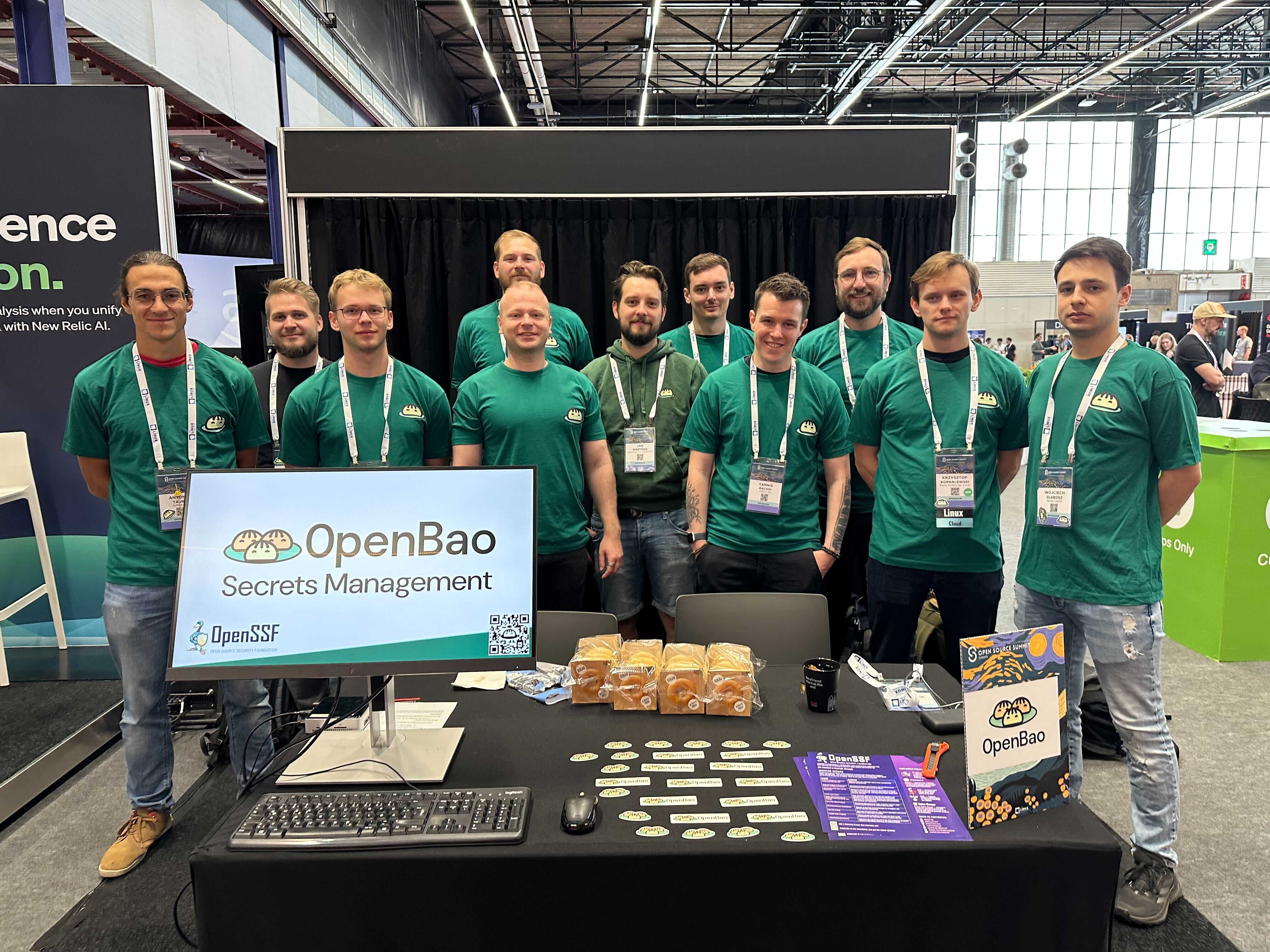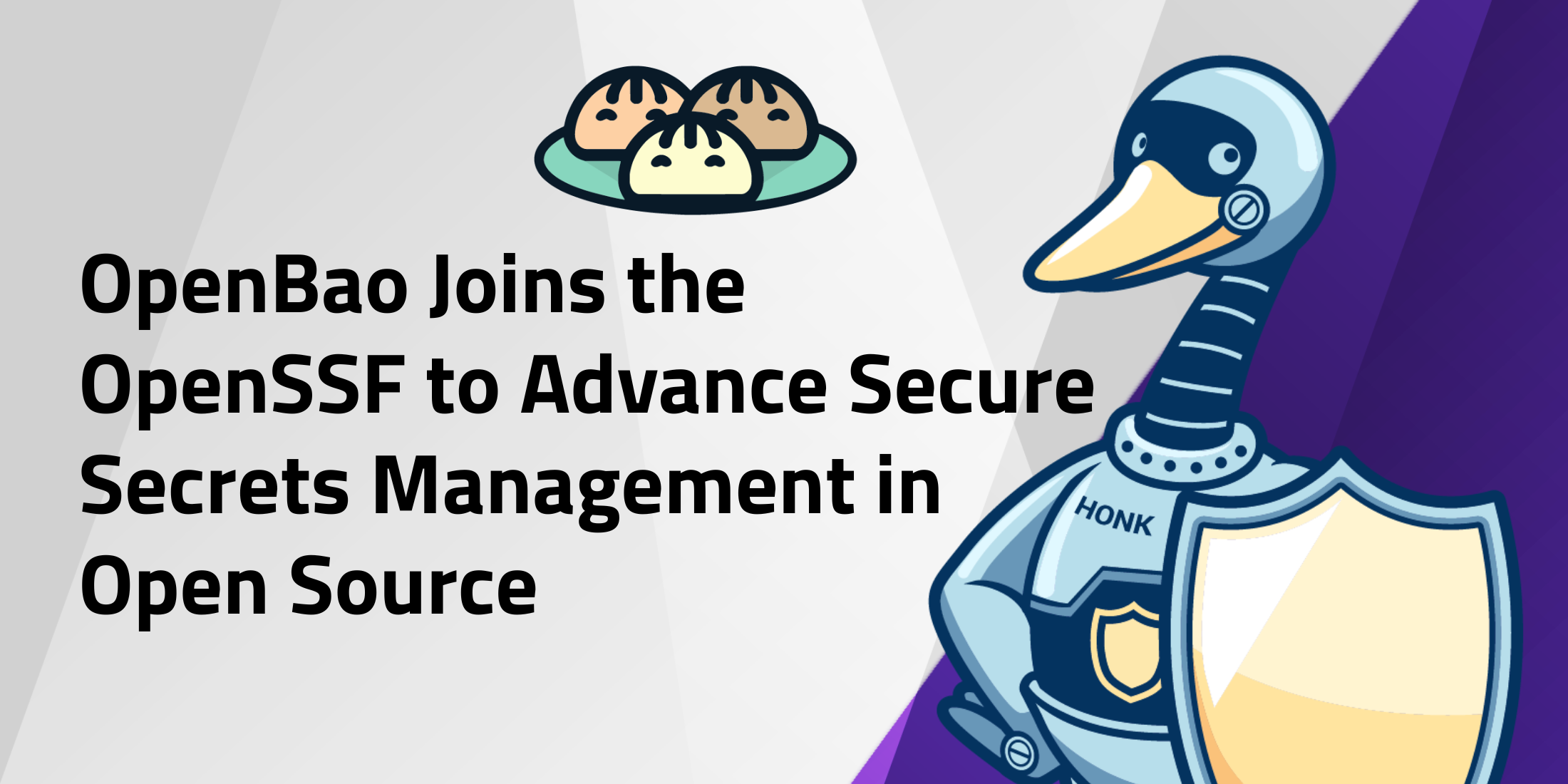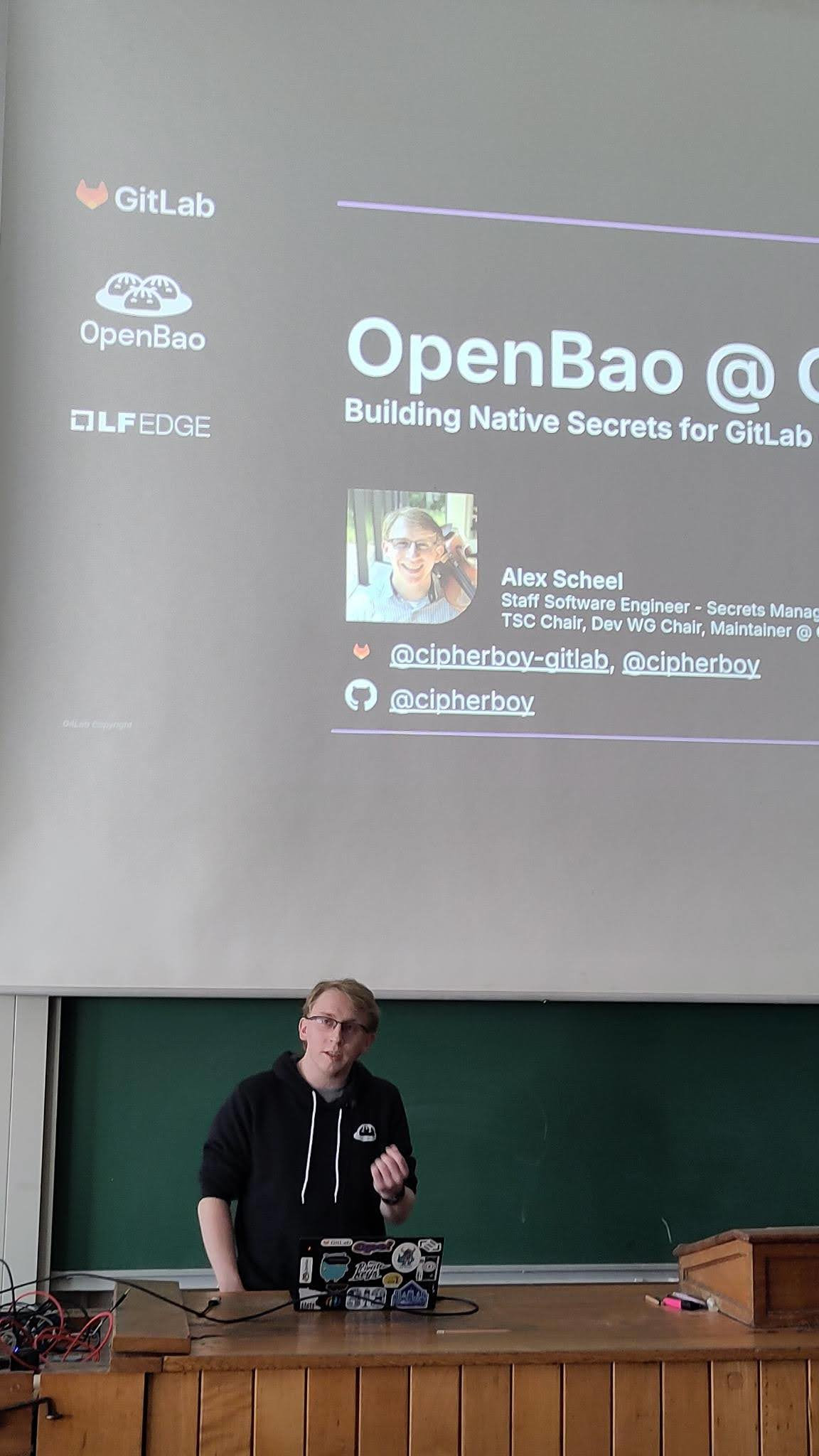OpenBao's Roadmap and Community Direction for 2025-2026
As the summer of 2025 closed, OpenBao's Dev WG and TSC put together and approved a new technical direction and roadmap for 2025-2026. But before we get into the details, I think is important to look back at and celebrate what all we've accomplished this year:
-
Many technical initiatives have landed, from namespaces to transactional storage, to CEL support, and many smaller things in between.
-
Many continuing working groups and large technical initiates have been started, from the horizontal scalability WG, focused on read scalability; the UI WG, focused on a rewrite of our EmberJS Web UI into React; to the PKCS#11/KMS WG, focused on including external keys into OpenBao. Thank you to everyone who participates in these!
-
Many, many contributions from many, many contributors! We welcomed:
- 741 commits to
main, - 287 contributors in the past year,
- 10 new committers, and
- 4 new moderators!
And like I say nearly every meeting, a special thanks to all net-new contributors! A fresh set of eyes brings wonders to a storied project, and often revisiting earlier design choices let us improve the experience.
- 741 commits to
And yes, not everything on the 2024-2025 roadmap was completed. Don't worry, you can still contribute items from it if you want! But for a community just starting out, with its first formal direction proposal, I think the response we got exceeded my wildest expectations.








